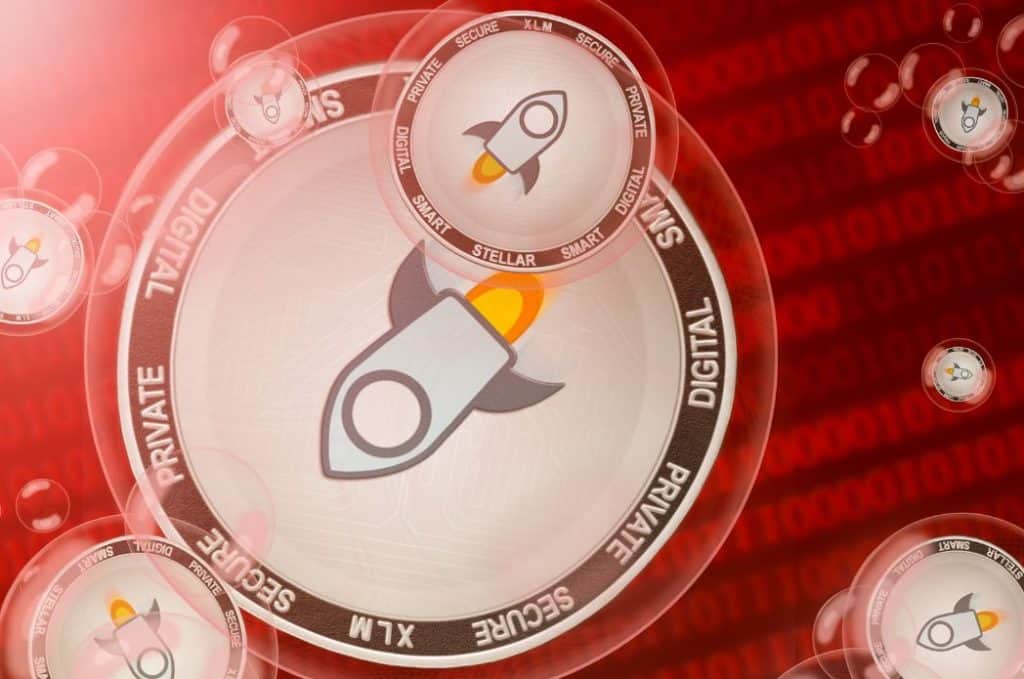As AI Transforms Investment Landscape, InQubeta (QUBE) Poised to Outshine Stellar (XLM) in 2023


Artificial Intelligence and blockchain technology have joined hands to disrupt the cryptocurrency market. There is a continuous influx of groundbreaking crypto projects coupling the decentralized nature of the blockchain with the ever-evolving innovations of AI. These AI-driven cryptocurrency projects have outshined the existing major players in the market like Stellar (XLM) backed by its terrific utilities and potential for long-term returns.

The changing financial landscape has welcomed the launch of the world’s first cryptocurrency crowdfunding platform by InQubeta (QUBE). The team at InQubeta has come up with a marketplace that resonates with the needs of AI-driven start-ups struggling for investments and investors seeking to diversify their investment portfolios. The platform allows the start-ups to list their NFTs with linked rewards and ensures equity and returns for the investors who can choose and participate in innovative potential projects.
The Ethereum-built network is powered by InQubeta’s native digital currency, QUBE. QUBE is a deflationary token that investors can use to buy the listed NFTs and draw passive income through staking. This novel idea has garnered excessive attention and positive reviews from crypto analysts and security firms worldwide ranking it amongst the top cryptocurrency coins.
Its popularity is well-reflected in the success the QUBE token is receiving in its presale stage. Embedded with unique use cases, InQubeta presents numerous offerings to potential investors who can choose to be a part of this revolutionary AI-driven cryptocurrency project by visiting their presale.
Analysts favor InQubeta as Potentially the Top Cryptocurrency ICO of 2023
Frontlining the list of cryptocurrency projects is InQubeta’s innovative crowdfunding platform for Artificial Intelligence (AI) driven start-ups. The idea of bridging the existing gap between investors and AI startups has gained immense popularity in the crypto market with many analysts claiming this to be the best cryptocurrency ICO of 2023. Currently, in the third presale stage, InQubeta’s project has already gathered a massive fund of around $2.2 million.
What makes this cryptocurrency project so popular? The answer lies in its novel idea of making the tedious investment process simple and democratic.
The founders at InQubeta have identified the growing concerns of the traditional investment process which also acts as a major roadblock in the field of technological advancements. AI-driven start-ups bring groundbreaking technology to the world but struggle to raise funds especially when they lack the resources and connections to Silicon Valley Investors. InQubeta aims to bridge the gap between these start-ups and investors by providing a marketplace with benefits for both parties. It is the world’s first platform facilitating cryptocurrency crowdfunding.
The InQubeta ecosystem is fueled by its native token QUBE. Built on the Ethereum blockchain network, QUBE is a deflationary asset allowing fractional investment in AI start-ups. The primary reason behind reducing the supply of QUBE tokens over time is to drive up its value, and create a steady surge in demand. This occurs through an event called the burn where the desired number of tokens are moved to a burn wallet from which it cannot be recovered.
Now, the next question that sparks curiosity is: how does the platform work? The InQuebta platform is a marketplace where AI startups can create NFTs with linked rewards to attract investors. Investors can browse through the NFTs listed, comparing and evaluating their potential to provide long-term benefits. They can purchase the NFT of their choice using the QUBE tokens and the corresponding start-up will receive the funds to drive their growth. While the start-ups receive the investment they require, the NFT holders or investors are entitled to profit-sharing, exclusive access to the start-up’s products or services, and benefits coupled with their success.
That’s not the end of their offerings! The holders of the QUBE can also indulge in staking, drawing benefits from the reward pool. Every transaction involving the token allocates 5% of the buy and sell tax to fund the reward pool and another 2% goes to the burn wallet maintaining its supply. As the community is the core of the InQubeta ecosystem, QUBE holders have the right to control its governance. They can collectively make decisions on changing the protocol and voting for the approval of any changes.
Capitalizing on the growing technologies of AI and blockchain, InQubeta is set on a path of revolutionizing the traditional investment process. The positive feedback its smart contract audit received from the security firms like Hacken further adds a layer of trust among the members of the community.
This cryptocurrency project is not a run-of-the-mill solution but is backed by several utilities. It has gained a lot of popularity in a short period of time and has secured the position of the top cryptocurrency coins to invest in. Potential investors and crypto enthusiasts can take early advantage of the current lowest token price of $0.0112 and reap its benefit in the long run.
Join the incredible journey of InQubeta’s first investor-focused crowdfunding platform by participating in the QUBE presale!
Stellar launches a Preview Version of the Smart Contracts Platform, Soroban
Stellar is an open-source protocol for storing and moving money. Created by The Stellar Development Foundation or Stellar.org, this peer-to-peer (P2P) decentralized network aims to build a single network where the world’s financial systems can work together. The platform is designed to enable its users to create, send, and trade digital representations of any form of money from dollar to bitcoin by linking people, banks, and payment processors in a single network.
The traditional financial system is a close-knit network operating in isolation creating a gap between systems. The major drawback of these gaps is directly reflected in the transaction costs being higher and the slow movement of money across political and geographical boundaries. This has hindered the growth of financial services laying strong emphasis on the need for an infrastructure that supports organic growth and innovation. In simple words, a worldwide financial network should ideally be open to anyone, where new organizations can join and expand their services to the unserved territories. However, with a global reach, users will not have confidence in a single entity running the network and verifying each transaction.
The best alternative to this approach is a decentralized network like the one created by Stellar where the users operate in a democratic ecosystem validating one another’s transactions. Hence, Stellar is a decentralized exchange and marketplace for trading cryptocurrency and other assets swiftly across borders and at a minimal transaction cost. The native digital currency of the network is XLM or Lumens. XLM is a payment token acting as an intermediary currency for the operations of its network. The non-crypto assets are held in a financial institution called Stellar Anchor and XLM tokens are issued in its replacement. The platform returns the asset upon withdrawal or redemption of the tokens.
Stellar, with its strategic approach of making the flow of money accessible and cheap across countries, raised a fund of around $35 million through its cryptocurrency ICO (Initial Coin Offering). In 2019, the platform burned around 50% of its token, surging the price by almost 14% within an hour of its announcement making it a top cryptocurrency to invest in at the time.
How does Stellar Operate? Stellar draws its inspiration from the flagship cryptocurrency, Bitcoin but operates on a different consensus mechanism. Bitcoin uses the proof-of-work (PoW) consensus protocol to validate the transaction on this network whereas Stellar utilizes the “Stellar Consensus Protocol (SCP)”. As per the Stellar Consensus Protocol, a group of trustworthy nodes is entitled to the responsibility of validating transactions and blocks. Anyone on the Stellar network can participate to be one of the trustworthy nodes. Each node can vote on the one they believe to be trustworthy and the one receiving the majority of the votes will be responsible for validating the transactions. SCP distinguishes itself by its unique ability to possess the four key properties of decentralized control, low latency, flexible trust, and asymptotic security simultaneously.
The company recently launched a preview version of its smart contract platform, Soroban. Soroban is designed to be scalable and developer-friendly, operating without the assistance of Stellar. This implies that it can be used by any transaction processor including other blockchains, permissionless ledgers, and L2s. The idea behind releasing the early version of Soroban was to encourage its community to test the platform and provide feedback to Stellar.
Stellar keeps its community of users and developers at the center of its innovation. With the aim to build what is essential and set a global standard, Stellar plans to bring convenience and accessibility to the financial world.
Conclusion
The growing partnership between Artificial Intelligence (AI) and blockchain is likely to bring forth major transformation in the financial world. While cryptocurrency projects like Stellar attract the market with their eco-friendly SCP approach supporting faster and cheaper movement of money across the globe, InQubeta plans to address the concerns of AI-powered start-ups, redefining the traditional investment process.
It comes as no surprise that investors face a major challenge in deciding which cryptocurrency to buy today for long-term returns. Every project is seen to compete with one another in terms of innovation and new cases, leaving the community in a dilemma.
However, users seem to be more interested InQubeta’s investor-focused platform. The platform is designed to cater to the needs of AI start-ups’ rising investment concerns. It aims to bridge the gap between start-ups and investors creating a more accessible and democratic ecosystem. Investors can now indulge in a fractional investment using InQubeta’s native token, QUBE.
QUBE is a deflationary utility token designed to reduce its supply over time to surge its value. The potential investors can draw a passive income from InQubeta’s well-funded reward pool not just by investing in the startups but also through staking. This new altcoin is set on a path to standardize the AI investment process mutually benefiting the participating parties. Many cryptocurrency analysts have shown unwavering confidence in the potential of this project to be the top cryptocurrency ICO of the year.
Disclaimer
In line with the Trust Project guidelines, please note that the information provided on this page is not intended to be and should not be interpreted as legal, tax, investment, financial, or any other form of advice. It is important to only invest what you can afford to lose and to seek independent financial advice if you have any doubts. For further information, we suggest referring to the terms and conditions as well as the help and support pages provided by the issuer or advertiser. MetaversePost is committed to accurate, unbiased reporting, but market conditions are subject to change without notice.
About The Author
Gregory, a digital nomad hailing from Poland, is not only a financial analyst but also a valuable contributor to various online magazines. With a wealth of experience in the financial industry, his insights and expertise have earned him recognition in numerous publications. Utilising his spare time effectively, Gregory is currently dedicated to writing a book about cryptocurrency and blockchain.
More articles

Gregory, a digital nomad hailing from Poland, is not only a financial analyst but also a valuable contributor to various online magazines. With a wealth of experience in the financial industry, his insights and expertise have earned him recognition in numerous publications. Utilising his spare time effectively, Gregory is currently dedicated to writing a book about cryptocurrency and blockchain.


















































